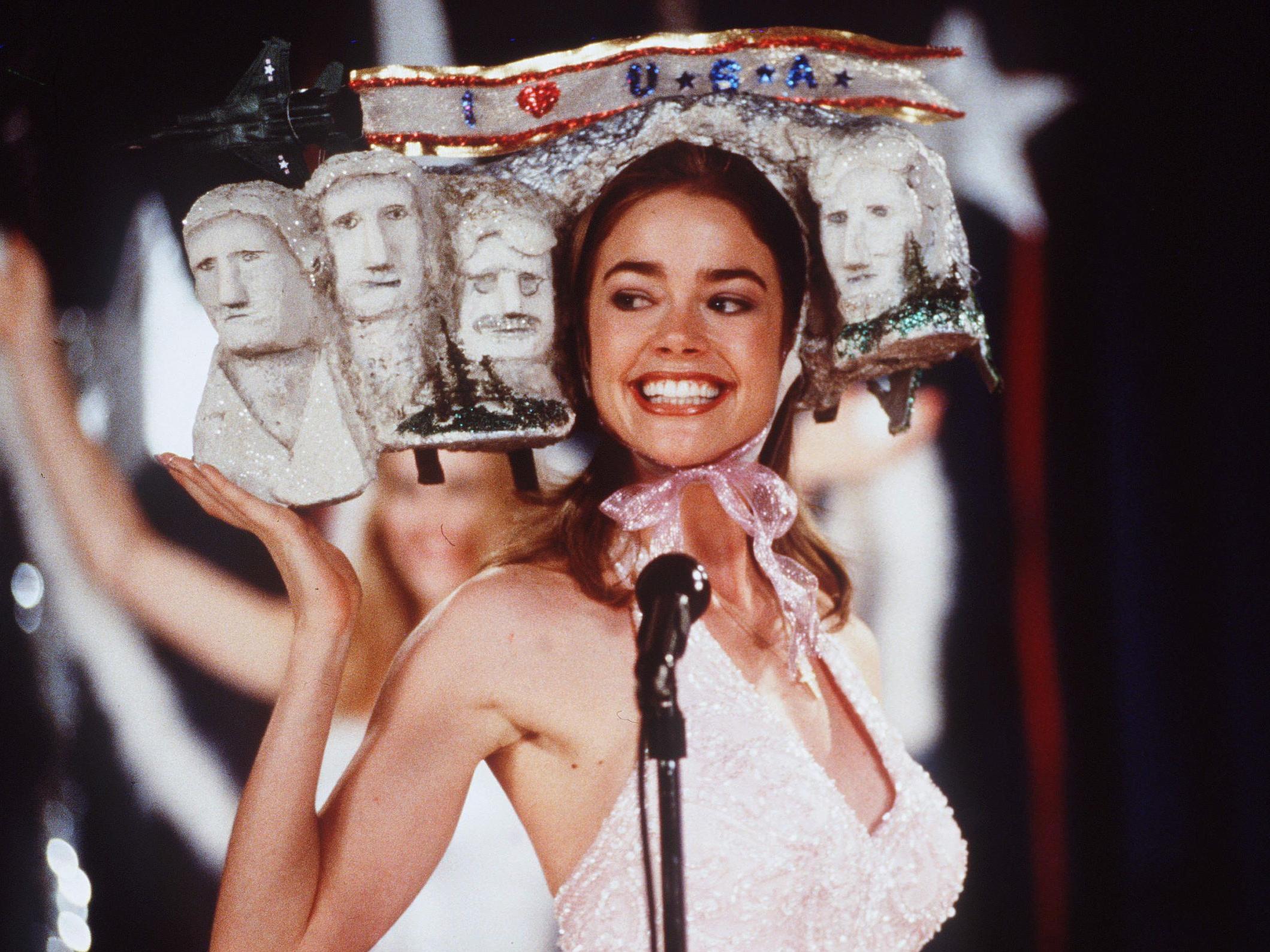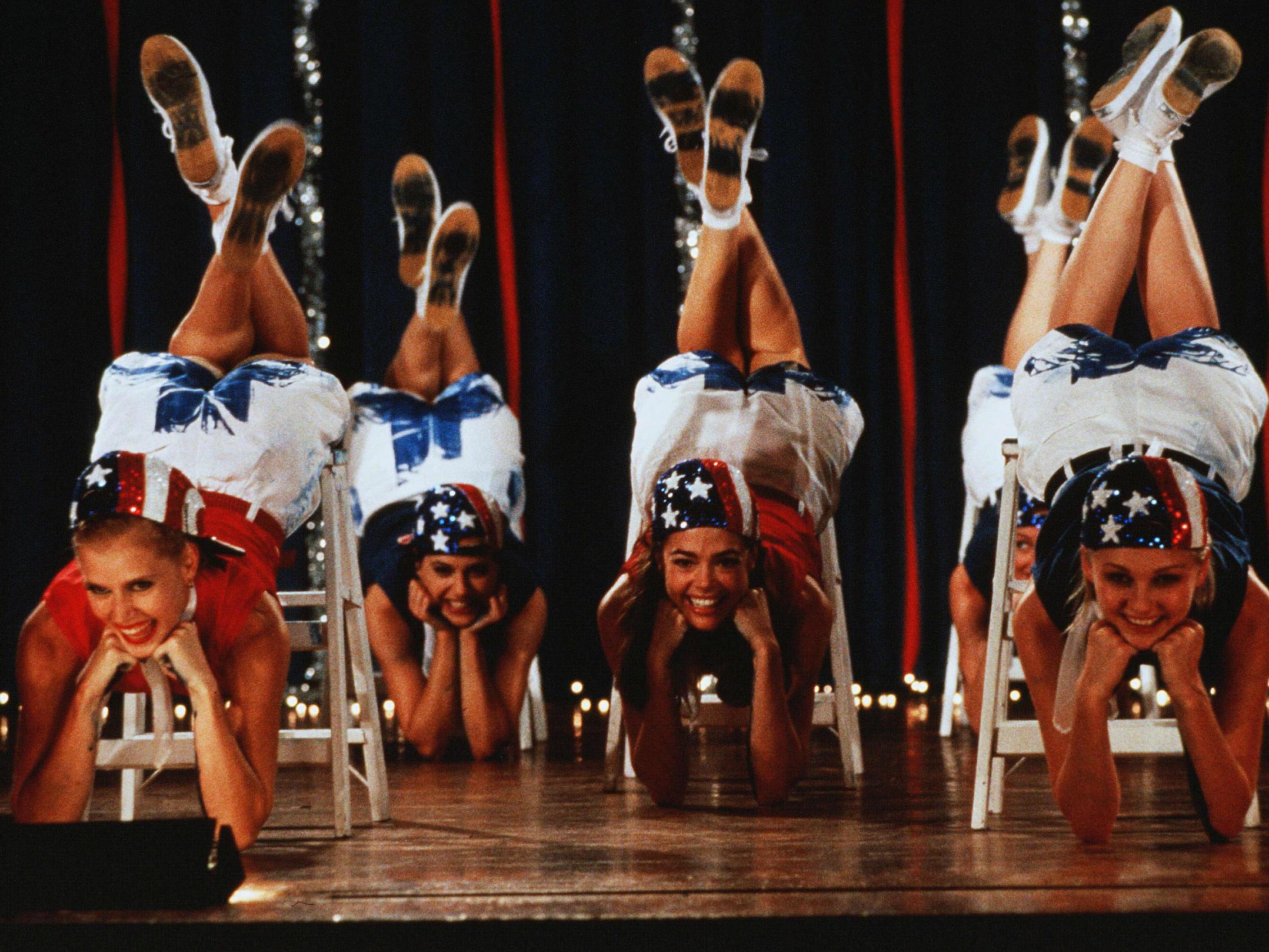Drop Dead Gorgeous: The cult comedy that defined Nineties teen outsiders
Twenty years after its release, the beauty pageant mockumentary starring Denise Richards, Kirsten Dunst and Amy Adams looks more truthful than all those movies where sex and dating meant bets and blackmail, says Adam White


Your support helps us to tell the story
From reproductive rights to climate change to Big Tech, The Independent is on the ground when the story is developing. Whether it's investigating the financials of Elon Musk's pro-Trump PAC or producing our latest documentary, 'The A Word', which shines a light on the American women fighting for reproductive rights, we know how important it is to parse out the facts from the messaging.
At such a critical moment in US history, we need reporters on the ground. Your donation allows us to keep sending journalists to speak to both sides of the story.
The Independent is trusted by Americans across the entire political spectrum. And unlike many other quality news outlets, we choose not to lock Americans out of our reporting and analysis with paywalls. We believe quality journalism should be available to everyone, paid for by those who can afford it.
Your support makes all the difference.Drop Dead Gorgeous, the cult beauty pageant comedy that turns 20 today, was made for a generation of freaks and outsiders, whose ambitions, oddities, queerness and poverty were otherwise ignored by anything similarly mainstream or funny.
To grow up alongside the American teenagers of late-Nineties cinema was to witness surreal, maddening and universally alien behaviour treated as entirely ordinary. These on-screen teens would crawl into bedroom windows using a step-ladder to watch Spielberg movies and eloquently talk about their changing bodies, like Katie Holmes and James Van Der Beek on Dawson’s Creek. Or they would reduce sex and dating to various acts of bargaining or blackmail, as in the bets that underlay 10 Things I Hate About You or She’s All That.
They were fantasy objects, often written by 40-year-old men, who existed in worlds few of us could ever dream of inhabiting ourselves. But then there was Drop Dead Gorgeous, which was acidic and truthful about beauty, class and ambition, satirised all-American moralism and blew up Denise Richards, then fresh from Wild Things, as she rode a giant paper-mache swan. It duly flopped upon release.
Written by Lona Williams and directed by Michael Patrick Jann, Drop Dead Gorgeous was a femme spin on a mockumentary genre largely dominated by the work of Christopher Guest. Richards, Kirsten Dunst, Brittany Murphy and Amy Adams are among the prettier residents of Mount Rose, Minnesota – smack in the middle of Fargo country, who compete in a local beauty pageant designed to elevate one lucky girl to big-city success. Someone is also picking off the contestants one by one, with Dunst’s plucky underdog Amber Atkins a regular target, along with her beer-swigging, trailer-trash mother Annette (Ellen Barkin).
Released in July 1999, Drop Dead Gorgeous was met with critical disdain (“made by morons, for morons,” wrote the AV Club) and weak box office numbers – it grossed just two thirds of its $15m budget. But it wasn’t particularly surprising, either. Drop Dead Gorgeous is an incredibly difficult film to condense into one easy pitch: part black comedy, part murder mystery, and more mean-spirited in its humour than anything popular with 1990s teens at the time. For an era dominated by Freddie Prinze Jr, a film that featured a character singing a Frankie Valli number while sporting an effigy of Jesus Christ strapped to her back was never going to be anything other than an oddball curio.
But Drop Dead Gorgeous has endured all the same. Last month, when it debuted on a US streaming service for the first time (it remains tragically unavailable outside of DVD in the UK), its arrival was met with a host of celebratory tweets, particularly among women and queer people, who have long recognised it as a cult classic. Writing in The New Yorker, essayist Jia Tolentino called it her favourite movie, and praised its “transformation... from a flop to a venerated artefact of Y2K-era camp”. Such late-in-the-day appreciation is a new and welcome component of the film’s legacy, which has more or less revolved around its discreetly A-list cast until just recently.
Adams was a dinner-theatre actress – serving food as well as performing – and living locally in Minnesota at the time. She’s spectacular as Leslie Miller, a riotous “sexy cheerleader” type who delivers every one of her few lines with a charmingly sweet deadpan (“They’re never gonna let you perform naked,” she says at one point, “I asked”). Dunst is all guileless naivety and boundless pep, while Richards is a snarling delight. In a fairer world, her Becky Ann Leeman would be spoken of in the same breath as Regina George of Mean Girls or Kathryn Merteuil of Cruel Intentions. Murphy, four years after Clueless but still some way off her early-2000s run of leading-lady roles, was never as radiantly spacey and charming as she is here.

Allison Janney similarly provides a performance for the ages. It is interesting to watch it today considering how familiar its notes have become in the years since, with Janney cornering the market in vaguely handsy and uncomfortably honest midwest women with a glass of tequila permanently clasped in their hands (she would win an Oscar in 2018 for doing basically the same thing in I, Tonya). But there is an endearing warmth to her role as Annette’s flirtatious best friend Loretta, who serves as a more compassionate if equally truth-telling mother figure to Amber. “‘Good things happen to good people’ [is] pure bulls**t, sweetie,” she wisely explains to Amber. “You’re lucky as hell, so you might as well enjoy it.”
Her character also best verbalises the film’s fascinating world-weariness. Back in 1999, there was a true daring to a mainstream teen comedy that was bleak and cynical about class and the futility of reaching for something bigger than yourself. It’s often wrapped up in jokes (“Guys get outta Mount Rose all the time for hockey scholarships... or prison,” Amber sadly notes), but deeply reflective of how many are forced to move through the world – destined for the middle unless especially lucky, and encouraged to feel guilty for ever wanting something more. The rich, meanwhile, will often be the first to resort to murky or entirely illegal activity to ensure the glory of their offspring. Even when, as in Drop Dead Gorgeous, they’re town royalty already – “It’s front page news when one of ’em takes a s**t,” Loretta snarks of the affluent Leeman family early in the film.
Speaking to Buzzfeed in 2014, both Williams and Jann spoke somewhat witheringly of their experiences on the film – Jann burned by studio meddling over the film’s tone, and Williams depleted by what she felt was Jann and producer Gavin Polone freezing her out when it came to important decisions. Both writer and director have barely worked in film since.
That Drop Dead Gorgeous has accumulated such a fanbase in the years since its release, with Janney noting in the article that she has the film quoted back to her by fans far more than The West Wing, also appeared to come as a surprise to the filmmakers that brought it to life. “I’m sure some of my view of it is tainted by reactions when it came out,” Williams told Buzzfeed, adding that the critical response to the film was “completely devastating” to her.
It’s something of a tragedy, specifically as it means they’ve likely never been informed of how influential Drop Dead Gorgeous inadvertently was, its legacy running far deeper than merely thrusting Amy Adams and Allison Janney onto an unsuspecting world. For it brought into the mainstream a deadpan cringe comedy popularised further by the likes of Parks & Recreation, Lisa Kudrow’s glorious The Comeback and Netflix’s brilliantly stupid American Vandal, all the while earning none of the credit for helping to kick-start it.
For those lucky enough to experience its greatness early on, via its brief theatrical release in the US or its late-night appearances on the BBC schedule throughout the mid-Noughties, none of this will be new information, Drop Dead Gorgeous long having been recognised in certain circles as one of the greats of modern comedy film, and regarded as a spiky antidote to the white-teeth sheen of late-Nineties teen pop culture. Thanks to Drop Dead Gorgeous and its gallows humour and battle-worn take on the world, an entire generation of impressionable kids grew up infinitely cooler than their Dawson Leery-worshipping peers.
Join our commenting forum
Join thought-provoking conversations, follow other Independent readers and see their replies
0Comments